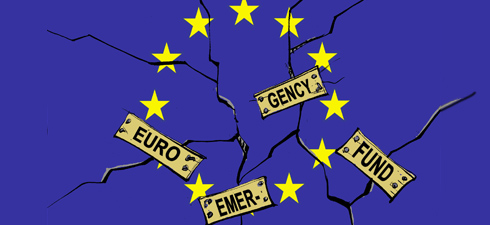Europe is changing. The current financial crisis has had the merit of revealing weaknesses in the software, and through it the integration of Europe has moved ahead at least as fast in these recent months as it did in the 1980s and early 1990s under the leadership of the troika of the time, Mitterrand, Kohl and Delors.
One by one, the tenets of the founding Maastricht Treaty have burst asunder. The euro is no longer sacrosanct. Today it is permitted to contemplate leaving the union, temporarily or permanently. The European Central Bank has certainly kept the union afloat while keeping inflation under control. But Jean-Claude Trichet never hesitated to toss orthodoxy overboard in buying up sovereign debts of states in distress by the billion.
Worse, tomorrow his independence could be questioned. For several months now there has been talk of creating an economic governance for Europe. Our president, Herman Van Rompuy, is at work on it, pushed by the French side, and should put forward proposals at the next EU summit two weeks from now.
Sometimes communicators, sometimes accountants
Meanwhile, the Commission of José Manuel Barroso, once the emblem of the federalist ideal, has been conspicuous by its absence in this crisis. Decisions are being made without it, even if Barroso is trying to reassert control by appropriating the eurobonds issue or the transformation of the EFSF into a European Monetary Fund. The hypothesis of a new treaty, of a federation of nation-states, or of a Europe running at two or three speeds are being discussed seriously even by those who are most “Europeanist”.
“Intergovernmentalism” is back. The heads of state are directly in control of the European ship, with the Franco-German tandem of founders at the bridge. Alas, they steer badly, as we have witnessed in recent months. They see themselves as sometimes communicators, sometimes accountants, rarely historical. But the opportunity to reinvent Europe is still there. And it’s a burning obligation if we are to prevent the G20 meeting in November from presiding over a disaster.
Translated from the French by Anton Baer
Opinion
For Joseph Stiglitz, the ECB is wrong
The main player in the fight against the debt crisis in the eurozone, the ECB is grounded in “a philosophy that has failed,” accuses Joseph Stiglitz. Interviewed by the Czech daily Hospodářské noviny, the winner of the Nobel Prize for Economics criticises the “ideological” independence of central banks, which “have mastered the financial crisis much less successfully” than banks led by governments. For “instead of being answerable to the citizens, they answered to the markets.” The ECB should from now on focus not solely on inflation but also on policies for employment, growth and financial stability.
Joseph Stiglitz does not foresee economic recovery in the coming years, as it is being undermined by, among other things, the austerity plans drawn up to control European states’ sovereign debts. What has to be built now is “an institutional framework that will create stability and responsibility.” According to the Nobel Prizewinner, Europe can learn from India, where the central bank is “independent and professional, but at the same time accountable to government.”
Was this article useful? If so we are delighted!
It is freely available because we believe that the right to free and independent information is essential for democracy. But this right is not guaranteed forever, and independence comes at a cost. We need your support in order to continue publishing independent, multilingual news for all Europeans.
Discover our subscription offers and their exclusive benefits and become a member of our community now!












